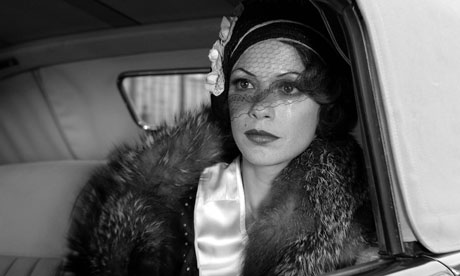
At the risk of disseminating a spoiler, we should probably point out that The Artist is a silent black-and-white picture. The dialogue sits on title cards, the players act like vaudeville entertainers and (if memory serves) the only live sound comes courtesy of the clink of glass on a table and a few spoken words at the end. Forewarned is forearmed, after all, and had the punters at the Liverpool Odeon known this in advance, they could have saved a lot of time and money, which they could then have spent watching Chipwrecked instead. As it was, they reacted to The Artist with open dismay, storming out of the cinema to demand a refund and thereby securing starring roles in the latest version of Idiot Britain.
Stories like this are reliable broadsheet catnip, because they make us feel so superior to those cultural illiterates who don't read good. What kind of bozo goes to see The Artist without knowing its USP anyway? Who manages to remain so ignorant of the one thing that made the movie a novelty to begin with? Wow, get a load of those morons. Demanding a refund because The Artist is silent? That's like walking out of a Harry Potter adventure angrily protesting that it's full of little kids.
But are these people really so remiss? If nothing else, they deserve a certain, grudging respect for avoiding the hype so nimbly that they come to a film as innocent as newborn babes. I'm not even sure that we can deride their decision to bail out and request their money back. The Artist, in running so obviously against the grain of mainstream cinema, was always going to be a tough sell. We have become so conditioned to embrace the new that the old feels like a slap in the face.
Retro doesn't work in film the way it does in music, say, or fashion. And maybe it was always that way. My grandparents, for instance, would never willingly sit down to watch a black-and-white film because they felt that they had been there, done that, and happily moved on to better things. The notion of why anyone would want to was mystifying to them; a perverse and possibly hazardous affectation; like riding to work on a penny-farthing or deliberately setting out to contract tuberculosis. It's safe to say they would have balked at The Artist, just as the next generation are balking at it now. At a family gathering last week, various aunts and cousins idly asked me whether "that silent film" was any good. None, I suspect, will ever go and find out for themselves.
For this, as in all things, I blame James Cameron. Or to spread the approbation a little further, I blame an industry that's yoked to the narrative of technological progress; the white-hot march towards the bigger, the louder and (by definition) the better. Who needs silents when you can have talkies? Two-dimensions when you can have three? Live-action performers when a dead-eyed, mo-cap ghoul can do the same job with added novelty value?
Accept the logic of Hollywood, then, and The Artist is always going to look like old rope, not a Proper Film; the equivalent of a bunch of boy-scout chancers charging us to see their home-movie at the Imax. In the case of The Artist, a deliberate return to antique artistry can pay handsome dividends. But in breaking from the script, it will inevitably lead to some punters feeling cheated.

